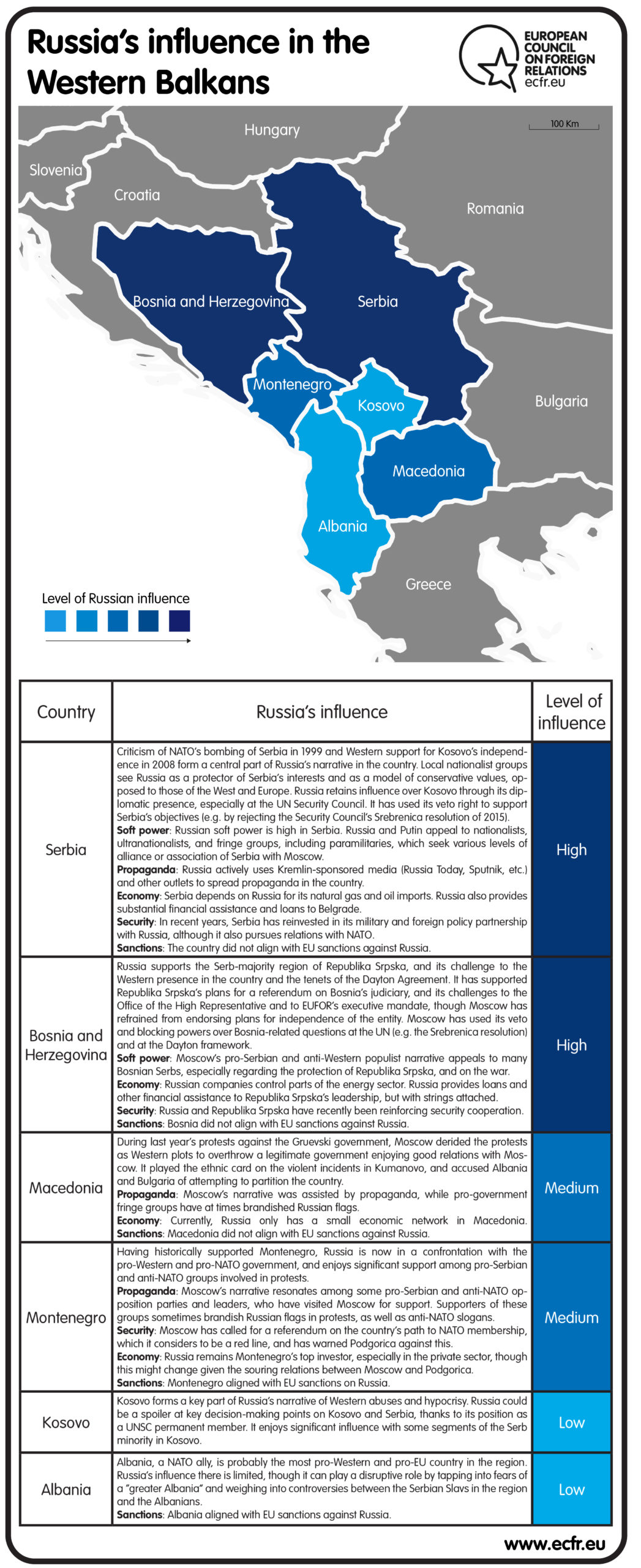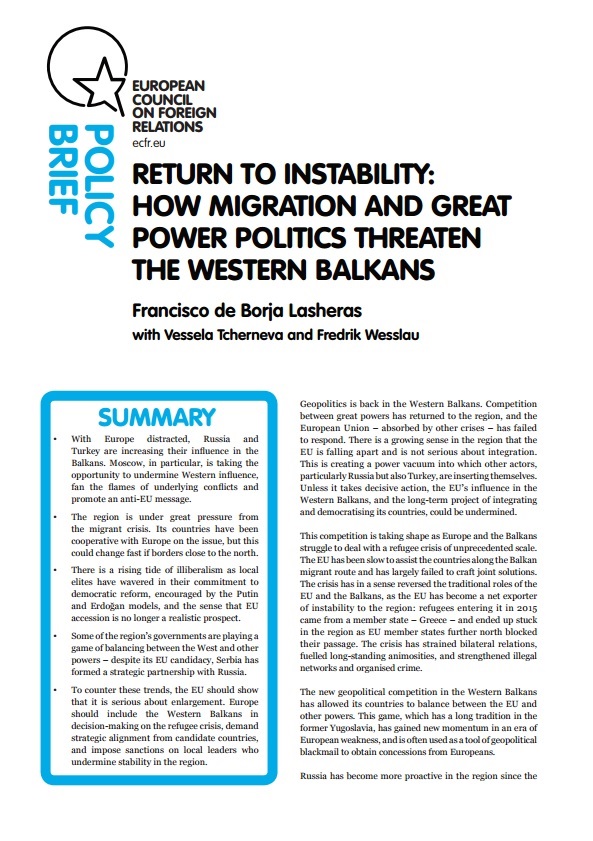Return to instability: How migration and great power politics threaten the Western Balkans
EU’s weakness is prompting a new scramble for power for the Balkans with Russia, Turkey and other actors
The EU’s weakness in the Western Balkans is prompting a new scramble for power for the Balkans, with Russia and other actors, including Turkey, furiously competing with Europe for influence.
“Return to instability, how migration and great power politics threaten the Western Balkans” explores the new ‘great power’ game taking place within the Western Balkans. In the face of other foreign policy challenges, the EU has collectively “dropped the strategic ball” in the Western Balkans and largely adopted a managerial – and at times inconsistent – firefighting approach. Unsolved conflicts, latent tensions and weak institutions remain stumbling blocks against an EU’s transformative power. The EU’s perennial crises have reduced Europe’s credibility and appeal in the region, weakening its power still further.
Such perceived EU failure is opening up spaces for other powers to assert their interests – above all Russia, but also Turkey, China and the Gulf States. As in other areas of the post-Soviet space, Russia plays a range of roles in the region: a disruptive actor in Bosnia, Macedonia and Montenegro, or making common cause with political elites and nationalist groups in the Serbian and Orthodox corners of the region, where its anti-Western and anti-European narrative of social conservatism and victimhood resonates strongly. Turkey appeals in turn to Muslims and Albanians. Russian and Turkish influence, combined with socio-economic stagnation, brain drain and lack of prospects is proving a fertile ground for the backlash against reforms, and the rise of authoritarianism. This is shown by the emergence of Putin or Erdogan-like regional strongmen, who hark back to the practices of the former Yugoslavia by hedging between east and west.

To restore European influence and mitigate the most negative aspects of geopolitical competition, the paper concludes, the EU cannot just stick to business as usual. An enlargement-policy only approach is not enough, especially when the baseline model is undermined from within and without the EU.
The refugee crisis offers an opportunity for Europe to re-engage with the Western Balkans. These countries need to be part of the mechanism for dealing with the refugee crisis, including decision-making. This must be coupled with strategic integration, without cutting corners on accession, through, for instance, the project of Energy Union or anchoring them to the EU’s space on justice and home affairs.
The EU and its member states must also get tougher on the Western Balkans on key areas. They must re-emphasise the centrality of democratic governance, human rights and the rule of law to push back against the creeping oligarchisation of the Western Balkans. To combat the temptation of Western Balkans leaders’ to align themselves with Russia or other external powers, strategic integration must be offered, but made dependent on strategic alignment with the EU’s foreign policy goals.
With the rise of geopolitical tensions, instability and hybrid campaigns, the EU and its member states must invest more collectively in prevention and beef up existing security presences to deter spoilers. They should also deploy counter-propaganda tools, building on the EEAS’ Stratcom Unit created after the war in Ukraine.
Francisco de Borja Lasheras, author of ‘Return to instability, how migration and great power politics threaten the Western Balkans’ said;
“Geopolitics has returned in force to the Western Balkans with non-EU powers, most notably Putin’s Russia, are making power plays in key capitals that exploit the perceived weakness of the EU. Selling the Kremlin’s particular brand of anti-liberal nationalism – backed by the promise of military assistance and the implicit threat of energy dominance – Russia is increasing its influence in Europe’s near neighbourhood.”
“The change in strategic circumstances mean that business as usual will not suffice.Enlargement must be recommitted to and must remain the baseline, but Europeans must put in place a more comprehensive, strategic approach. They also need to invest in prevention, deterrence and tools aimed at mitigating hybrid interferences and containing the region’s upcoming crises, or spill overs from a neighbourhood shattered by instability and geopolitical competition”.
“The EU needs to make clear to the Western Balkans states that full, and not secondary, membership is something they can and should aspire to, provided they meet the requirements. But it also needs to make sure that strategic alliances with non-European powers, particularly where this alignment goes against European interests, do not eventually undermine a fragile EU’s cohesion.”
The European Council on Foreign Relations does not take collective positions. ECFR publications only represent the views of their individual authors.



